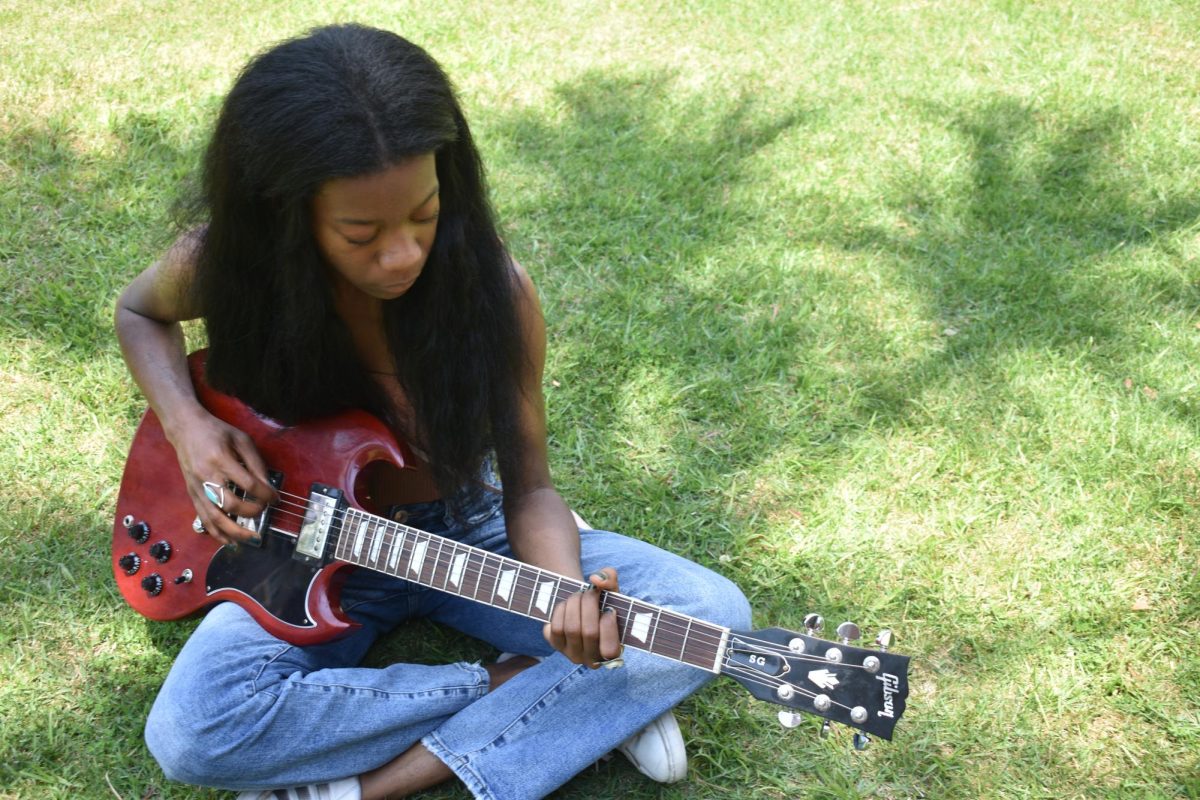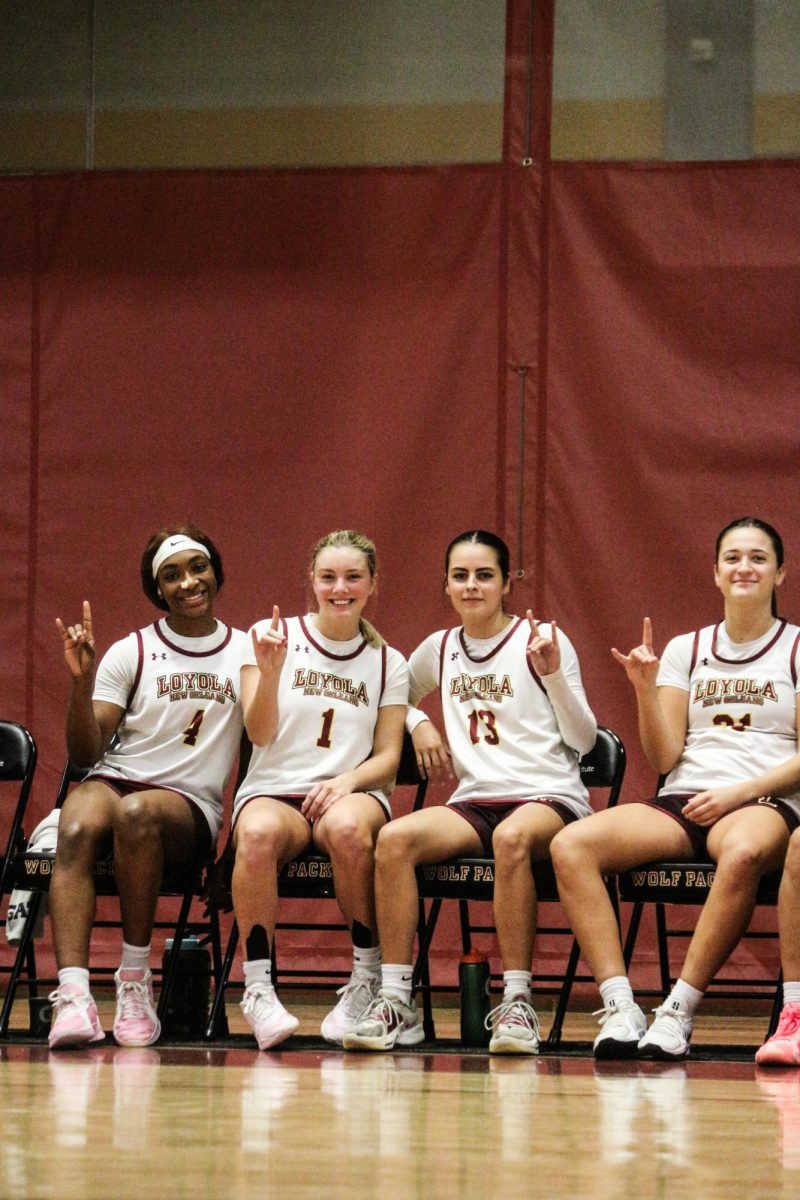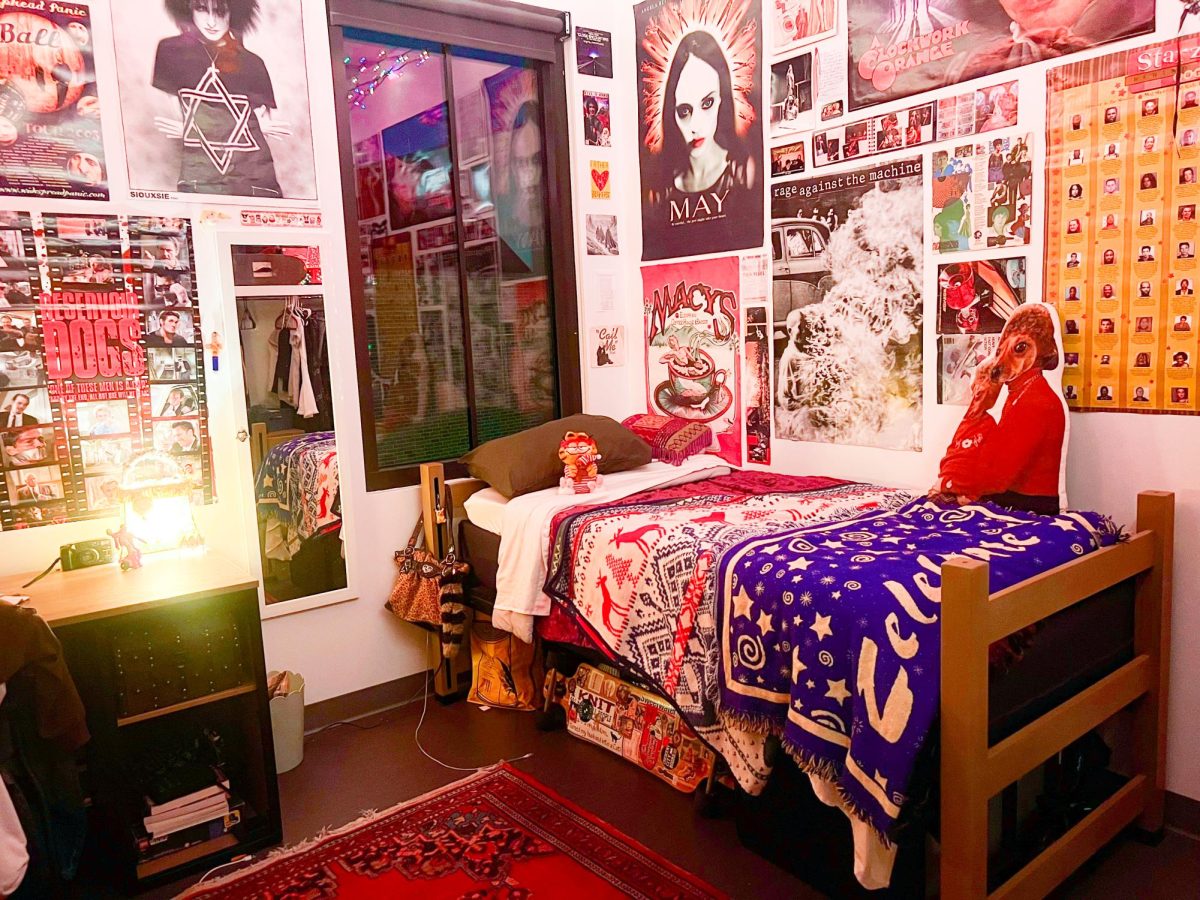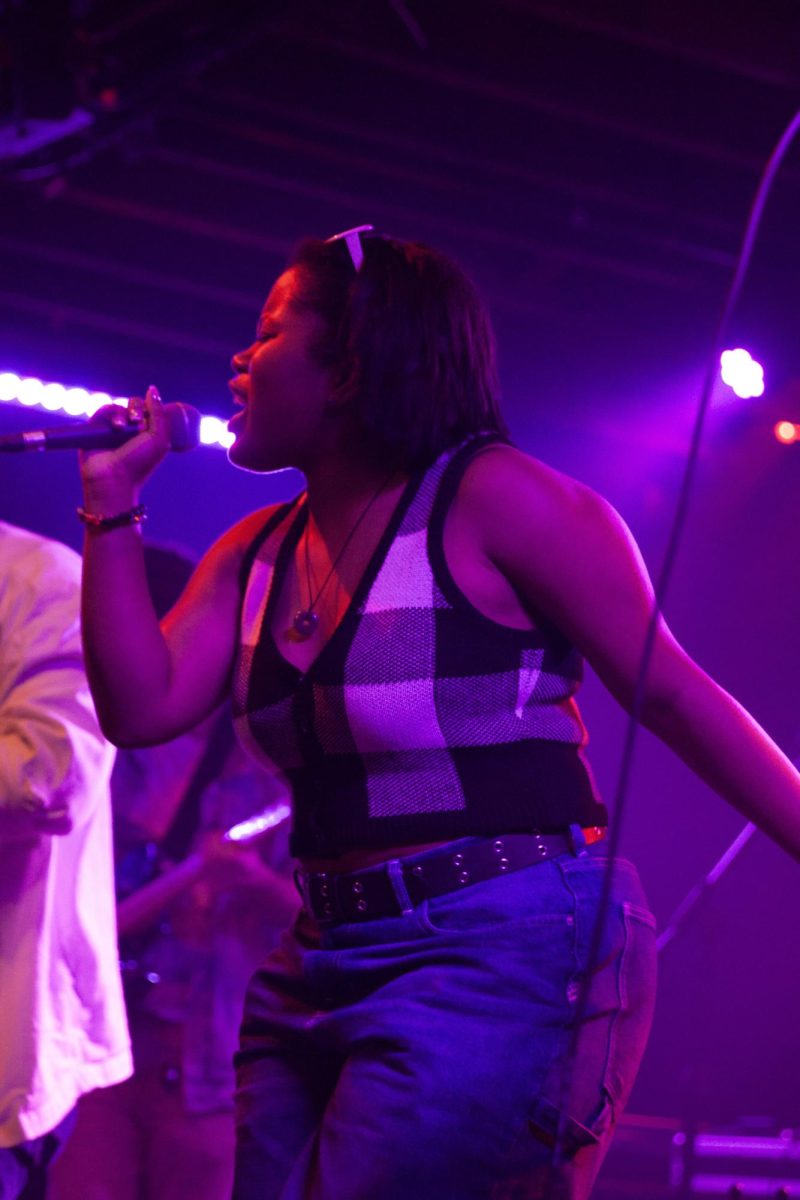Music industry seniors Jade Robbins, Noa Jamir, Riley Miniex, and Joseph Belcher have evolved into artists who trust, collaborate, and look up to each other.
Closing their college tenure, the musicians have learned how to be their true inner selves. Together they have created intimate music to inspire and ignite that in others too.
They each performed their end-of-college career capstone performance at Siberia Bar, New Orleans.
Robbins and Jamir performed Jamir’s song, “Want to Love” as a duet. “It’s just a song about how sometimes, love is a practice, both to others and to yourself,” Jamir said.
Jamir appreciates and honors Robbins as a musician, which inspired the blending of their art in Jamir’s capstone project.
“I love Jade so much as a human, but her artistry is so genuine and natural, it comes so naturally from her soul and I hear that whenever she sings,” Jamir said.
Jamir said she chose Robbins to sing with her because she was one of the first people who heard the song, and she could tell she resonated with it.
“Her reaction to it was so heartwarming and validating to me. Ever since then, I have wanted to sing with her on that song,” Jamir said.
For Robbins, the journey with “Want to Love” began two years prior when she first heard Jamir perform it during a forum class. The emotional impact of the song stuck with her, leading to a profound connection that culminated in their duet performance.
“Ever since [forum] she’s been sending me updates about the recording of it and then when she asked me to sing at her capstone I was so over the moon and overjoyed because it means so much to me,” Robbins said. Robbins said Jamir is one of her favorite people to work with.
Robbins connects with the song. For her, the song symbolizes and illustrates, “companionship within loneliness,” she said, “I think two people singing it really strengthens that message.”
Belcher has had an appreciation for “Want to Love” for years.
“It was a really cool moment to see two of my really good friends performing such a personal song together. It is nice to see people show appreciation for people they love,” he said.
The intention of the capstone was to create an intimate, honest performance, where others felt able to introspect and be still, Jamir said.
She said there is “power in delicacy and softness,” Jamir said. “ It requires stillness and a little bit of introspection.”
She had a vision of intimacy since she felt they all have similar music that asks for the audience to lean in and listen with open ears.
“I think we really captured the vision,” Jamir said. “In each of our sets there were moments where you could hear a pin drop and it felt really powerful,” Jamir said.
Miniex said she wanted to share love in her music. A friend asked her to write a song for their significant other, so she did. Despite the challenge of sharing personal emotions, she said it was a rewarding experience to channel the emotions of another person.
“I wrote it on her behalf and it was nice to be vulnerable with someone else’s vulnerability,” Miniex said.
She knew she’d be singing alongside Robbins, Jamir, and Bleher, so she wanted to bring songs to her set that complemented their raw styles. She sang songs about heartbreak and love. As she had familiarity with their music, she expected the tone of the capstone to be emotionally charged, so she embraced that emotion in her own performance.
Belcher said the overall theme of the night was the ebbs and flows of the heart.
“There were definitely overtones of heartbreak throughout the set, but also about the great things that come in the aftermath,” he said.
Miniex was so impressed by Belcher’s stage presence, for it was his first solo performance, and she said he was very vulnerable and present. “All three of them were, and that is something I am working on, so it was nice to see them execute that naturally,” she said.
Robbins hoped to show honest emotion through her set. “I wanted to create something vulnerable, beautiful, and feminine,” she said.
Belcher also hoped to invoke introspection and vulnerability within others through his performance.
“I want the audience to feel what I feel through the lens of their own experience, but if they can’t relate to it just to hear a perspective they may not have thought about before,” he said.
His capstone was a symbol of the resilience he’s experienced, he said.
“My capstone in one word is catharsis. It’s been a crazy semester and my capstone really chronicled my triumph through it. I hoped to spread a message of personal strength and perseverance– the message of creating a home within oneself,” he said.
Miniex said she did not go in with any expectations of what the audience would feel, “I think it is respective to every person what they get out of it,” she said.
“I hope I left the audience with a sense of peace, whether that be rhythmically or sonically,” she said.
They each described that through their experiences at Loyola, they have changed as musicians and people.
Miniex said she’s learned that music is more than talent, it is about communicating an idea to the audience. She is more cognizant of all the vast elements that fall into artistry, she said.
“I came into the program thinking it was enough to have talent and make pretty sounds, and I am leaving just understanding the importance of building your artistry,” she said.
Robbins’ voice professor taught her to put an imaginary, yellow spacesuit of protective energy before each performance. It has helped her in many ways, she said.
Belcher gained the ability to let all parts of his life shine through his music.
“I feel like a sponge now. I feel like I had shutters on for a while through my battles with mental health but my experience at Loyola has allowed me to remove those and take in all the beautiful things around me,” Belcher said.
Jamir has gained confidence in herself, and in working collaboratively with others. This was shown in her duet with Robbins, for they captured their intimacy as music partners, Jamir said.
She was able to be present in the moment, which was different from the beginning of her music journey at Loyola.
“When I am on stage I am not thinking about anything, I am just totally there,” Jamir said.
Considering Jamir has a specific sound, different from others, she sometimes worries her soft voice will be drowned out. But she has learned how she can use her voice in powerful ways.
“I am not a powerhouse vocalist, but having the ability to silence a room is a superpower,” Jamir said.
After four years of Robbins watching her peers grow and evolve, it was powerful to see them all express themselves fully at the capstone, she said.
“I felt like we were doing something meaningful. I think it can be really easy to get discouraged from doing art and music right now in the world financially but when you are actually doing it you forget all about that,” Robbins said.
In their collaborative effort at Siberia Bar, Robbins, Jamir, and Belcher not only showcased their musical talents but also illuminated the transformative power of authenticity, collaboration, and self-expression.
As they embark on new chapters beyond college, their shared journey serves as an inspiration for aspiring musicians and creatives alike, reminding us of the enduring significance of staying true to oneself and embracing the journey of artistic evolution.





















